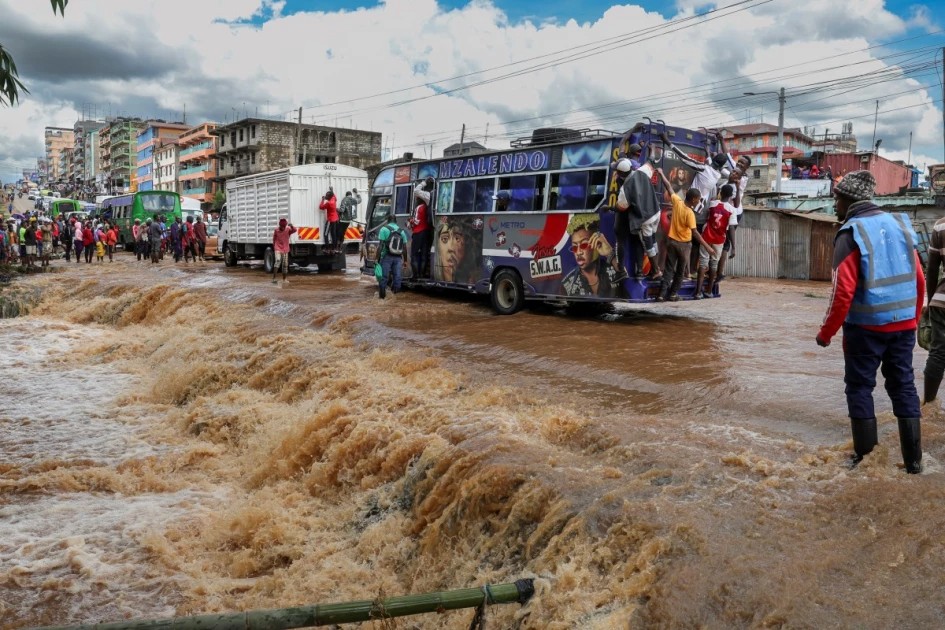- This kind of pollution can extend beyond the intended target to causing contamination to air, water, soil, and extensively affecting non-target organisms starting with human beings.
Pesticides are substances that are intended to prevent, destroy, repel and mitigate pests. These substances can turn out to destroy the user if handled ignorantly.
Pesticides are used to protect crops and ensure the food supply is not affected by controlling pests in farms, home gardens and other public spaces where farming is done.
The intention of using pesticides is to maximise output while controlling pests at the same time.
If this is done improperly, it can cause massive environmental pollution and put the health of users and consumers at risk due to mishandling and ignorance of use instructions, as well as the disposal methods.
This kind of pollution can extend beyond the intended target to cause contamination of air, water, soil, and extensively affect non-target organisms, starting with human beings.
Read More
Pesticides that stay in soil for longer than the stipulated period can affect the health of the soil and cause contamination of groundwater through runoffs and leaching.
In addition, the runoff from treated farms carries pesticides, which are deposited in water bodies like dams and open boreholes.
The contamination of surfaces and groundwater consequently affects aquatic life like fish, which directly affects human beings through their consumption as food.
Drinking water from such sources also has a massive impact on human beings.
Air pollution is not an exception in matters of pesticides. Volatile pesticides that evaporate into the atmosphere contribute hugely to air pollution, consequently impacting the respiratory health of human beings and other animals.
Pesticides can cause either short-term or long-term harm to the ecosystem. They disrupt the delicate balance of ecosystems by harming beneficial insects like bees, pollinators, wildlife and human beings, potentially leading to biodiversity loss.
The continuous accumulation of pesticides in living organisms increasingly concentrates as they move up the food chain. At some level, they become harmful to both human beings and other living organisms.
Once pesticide pollution has reached this level, it has negative health impacts on both human beings and other animals. For instance, acute and chronic illnesses may occur.
Such illnesses will present themselves as headaches, dizziness, cough, skin rashes, fatigue and vomiting, among others, as short-term effects, while long-term effects are cancers, neurological disorders and reproductive problems, among others.
Another long-term risk of exposure to pesticides is birth defects in human beings. Pregnant mothers who are exposed to pesticide pollution are likely to miscarry or give birth to children with structural and functional abnormalities.
The abnormalities can affect various parts of the baby’s body, and the range in severity can be mild or serious. The defects can impact the physical appearance of the child, the functioning of their bodies or both.
Some pesticide pollution can interfere with the endocrine system, causing disruption in hormone production and functioning.
This disruption may lead to retarded growth, underdevelopment, impaired metabolic processes, poor or lack of reproduction, etc.
If the endocrine system is affected, the nervous system may be affected as well because they work closely with one another to ensure the maintenance of homeostasis and the overall well-being.
So, what are some of the factors contributing to pesticide pollution?
Pesticide pollution is a multilayered issue emerging from various factors related to pesticide use as well as environmental factors.
The main contributors are the chemicals in the pesticides, the methods of application, environmental factors, and human behaviour.
Pesticide properties like volatility and persistence, improper applications like not applying the recommended amounts, largely contribute to environmental contamination via volatilisation, runoff and soil accumulation.
In addition, temperature, wind, sun and other environmental conditions can influence the breakdown and movement of pesticides.
Human beings can also exacerbate the problem through ignorance of not observing adequate protective measures and unawareness of proper usage of pesticides.
Not disposing of pesticide containers and residues properly can significantly lead to environmental pollution.
Some of the practices not recommended, like burning the containers, burying them underground, and heaping them up in pits, can all lead to runoff and leaching, which will significantly pollute the environment.
Some agricultural sectors and manufacturing companies practice secrecy and a lack of transparency on pesticide use. This makes it difficult for the users, sellers and other stakeholders to assess and address any potential risks of pollution.
Sometimes, due to behavioural lock-ins, existing cultural norms and social patterns on food security, some users may reinforce excessive pesticide use, thinking that yields will increase even when instructed to use less harmful practices. Some users do this ignorantly, even when they are aware of the involved risks.
To address the issue of pesticide pollution, education and awareness are paramount. Promoting education and awareness programs through media and other public platforms for farmers and other users can play a magic role in curbing the menace. The focus should be primarily on pesticide handling and disposal.
At the same time, implementation and enforcement of regulations on pesticide use, storage and disposal will be significant in minimising environmental contamination.
Promotion of integrated pest management that emphasises biological pest control methods instead of relying on chemical pesticides will be beneficial in curbing environmental pollution and related health risks.
Therefore, the development and promotion of safer alternatives through investing in research on eco-friendly pesticides and pest control methods is crucial.
Promotion of a culture of responsible pesticide use and stewardship is essential as well. Every individual involved should take responsibility by minimising risks emanating from pesticide use. This is vital for environmental protection as well as human health.

-1754658968.jpg)




-1769677767.jpg)